#how to read a book like virginia woolf
Explore tagged Tumblr posts
Text
How to Read a Book Like Virginia Woolf?
Reading a book, Virginia Woolf-style, is not all that difficult. Reading—if one enjoys this chore, as I suppose you would if reading this essay—like everything else, is a banal activity. It certainly comes with its techniques and rules. It requires knowing how to internalise what you have just read as much as enjoying the process of reading. But there is more to reading than just sitting in one…

View On WordPress
#Adarsh Badri#how to read#how to read a book#how to read a book like virginia woolf#how to read a book steps#important tips for reading a book#key tips for reading a book#reading like virginia woolf#society#tips to read a book#what is important when you read a book
1 note
·
View note
Text
love it when the novels start hitting too close to home, and i just keep adding more cathartic novels to my tbr. the god of small things by arundhathi roy. this winter by alice oseman, act cool by tobly mcsmith. once i get to the waves by virginia woolf and the silence that binds us by joanna ho i will be unstoppable (or curled up into a fetal position)
#i need to Reflect on some things and books are my vessel#love how my reading taste is just YA and modern classics#its also shakespeare but after hamlet i dont think im ready to self project on another 400 year old work just yet#if i read as you like it annd something changes ah well#the god of small things#alice oseman#tobly mcsmith#virginia woolf#the silence that binds us
10 notes
·
View notes
Text



Here are my stats. Pls send book recommendations 🙏❤️
#my most read author is Virginia Woolf also but that's mostly bc of a class i took#I've logged over 200 books by now on story graph :D#anyways i never know how to describe what i like reading so i find this helpful#that said idk how much i trust the mood classifications#but maybe that's bc it's always telling me i like sad boring books lmao
5 notes
·
View notes
Text
Point of View: the Biggest Thing You're Missing!
Point of view is one of the most important elements of narrative fiction, especially in our modern writing climate, but you rarely hear it seriously discussed unless you go to school for writing; rarely do help blogs or channels hit on it, and when they do, it's never as in-depth as it should be. This is my intro to POV: what you're probably missing out on right now and why it matters. There are three essential parts of POV that we'll discuss.
Person: This is the easiest part to understand and the part you probably know already. You can write in first person (I/me), second (You), and third person (He/she/they). You might hear people talk about how first person brings the reader closer to the central character, and third person keeps them further away, but this isn't true (and will be talked about in the third part of this post!) You can keep the reader at an intimate or alien distance to a character regardless of which person you write in. The only difference--and this is arguable--is that first person necessitates this intimacy where third person doesn't, but you still can create this intimacy in third person just as easily. In general, third person was the dominant (and really the only) tense until the late 19th century, and first person grew in popularity with the advent of modernism, and nowadays, many children's/YA/NA books are written in first person (though this of course doesn't mean you can't or shouldn't write those genres in the third person). Second person is the bastard child. Don't touch it, even if you think you're clever, for anything the length of a novel. Shorter experimental pieces can use it well, but for anything long, its sounds more like a gimmick than a genuine stylistic choice.
Viewpoint Character: This is a simple idea that's difficult in practice. Ask yourself who is telling your story. This is typically the main character, but it needn't be. Books like The Book Thief, The Great Gatsby, Rebecca, Dr. Jekyll and Mr. Hyde, and the Sherlock series are told from the perspective of a side character who isn't of chief importance to the narrative. Your viewpoint character is this side character, the character the reader is seeing the world through, so the main character has to be described through them. This isn't a super popular narrative choice because authors usually like to write from the perspective of their most interesting character, but if you think this choice could fit your story, go for it! You can also swap viewpoint characters throughout a story! A word of warning on that: only change your viewpoint character during a scene/chapter break. Switching mid-scene without alerting the reader (and even when you do alert the reader) will cause confusion. I guarantee it.
Means of Perception; or, the Camera: This part ties the first two together. If you've ever heard people talk about an omniscient, limited, etc. narrator, this is what they mean. This part also includes the level of intimacy the reader has with the viewpoint character: are we in their heads, reading their thoughts, or are we so far away that we can only see their actions? If your story is in a limited means of perception, you only have access to your character's head, eyes, and interpretations, where an omniscient narrator sees through all characters' heads at once. (This doesn't eliminate the viewpoint character--most of your writing will still be in that character's head, but you're allowed to reach into other characters' thoughts when needed. You could also be Virginia Woolf, who does fluidly move through everyone's perspectives without a solid viewpoint character, but I would advise against this unless you really are a master of the craft.) Older novels skew towards third person omniscient narration, where contemporary novels skew towards first person limited. You also have a spectrum of "distant" and "close." If omniscient and limited are a spectrum of where the camera can swivel to, distant and close is a spectrum of how much the camera can zoom in and out. Distant only has access to the physical realities of the world and can come off as cold, and close accesses your character's (or characters', if omniscient) thoughts. Notice how I said narration. Your means of perception dramatically effects how your story can be told! Here's a scene from one of my stories rewritten in third-person distant omniscient. The scene is a high school football game:
“Sometimes,” he said. “Not much anymore.” “It’s not better, then?” She shivered; the wind blew in. “A little.” His tone lifted. “I don’t know if it’ll ever be better, though.” She placed a hand on his arm, stuttered there, and slipped her arm around his waist. “Did it help to be on your own?” He raised an eyebrow. “You were there.” “Yes and no.” “And the guys, the leaders.” “Come on,” she heckled. “Okay, okay.” Carmen sighed. “Yeah, it helped. I don’t think—I don’t know—I’d be me if they’d fixed it all.” She grinned. “And who might you be?” “Oh, you know. Scared, lonely.” He fired them haphazardly, and a bout of laughter possessed him which Piper mirrored. “Impatient.” “And that’s a good thing?” “No.” He sat straight. “Gosh, no. But I don’t want to be like him, either.” He pointed to the field; Devon recovered a fumbled ball. “He’s never been hurt in his life.” She met his eyes, which he pulled away. “You don’t mean that," Piper said. “Maybe not. He’s too confident, though.” The cloth of Carmen's uniform caved and expanded under Piper's fingers.
With distant-omniscient, we only get the bare actions of the scene: the wind blows in, Piper shivers, the cloth rises and falls, Carmen points, etc. But you can tell there's some emotional and romantic tension in the scene, so let's highlight that with a first person limited close POV:
“Sometimes,” he said. “Not much anymore.” “It’s not better, then?” Frost spread up from her legs and filled her as if she were perforated rock, froze and expanded against herself so that any motion would disturb a world far greater than her, would drop needles through the mind’s fabric. A misplaced word would shatter her, shatter him. “A little.” His tone lifted. “I don’t know if it’ll ever be better, though.” She placed a hand on his arm, thought better, and slipped her arm around his waist. “Did it help to be on your own?” He raised an eyebrow. “You were there.” “Yes and no.” “And the guys, the leaders.” “Come on,” she heckled. “Okay, okay.” Carmen sighed. “Yeah, it helped. I don’t think—I don’t know—I’d be me if they’d fixed it all.” She grinned. “And who might you be?” “Oh, you know. Scared, lonely.” He fired them haphazardly, and a bout of laughter possessed him which Piper mirrored. “Impatient.” “And that’s a good thing?” “No.” He sat straight. “Gosh, no. But I don’t want to be like him, either.” He pointed to the field; Devon recovered a fumbled ball. “He’s never been hurt in his life.” “You don’t mean that.” She spoke like a jaded mother, spoke with some level of implied authority, and reminded herself again to stop. “Maybe not. He’s too confident, though.” Piper felt the cloth of his waist cave and expand under her fingers and thought: is this not confidence?
Here, we get into Piper's thoughts and physical sensations: how the frost rises up her, and how this sensation of cold is really her body expressing her nervous fears; how she "thought better" and put her arm around his waist; her thought "is this not confidence?"; and how she reminds herself not to talk like a mother. Since I was writing from the close, limited perspective of a nervous high schooler, I wrote like one. If I was writing from the same perspective but with a child or an older person, I would write like them. If you're writing from those perspectives in distant narration, however, you don't need to write with those tones but with the authorial tone of "the narrator."
This is a lot of info, so let's synthesize this into easy bullet points to remember.
Limited vs. Omniscient. Are you stuck to one character's perspective per scene or many?
Close vs. Distant. Can you read your characters' thoughts or only their external worlds? Remember: if you can read your character's thoughts, you also need to write like you are that character experiencing the story. If child, write like child; if teen, write like teen; etc.
Here's another way to look at it!
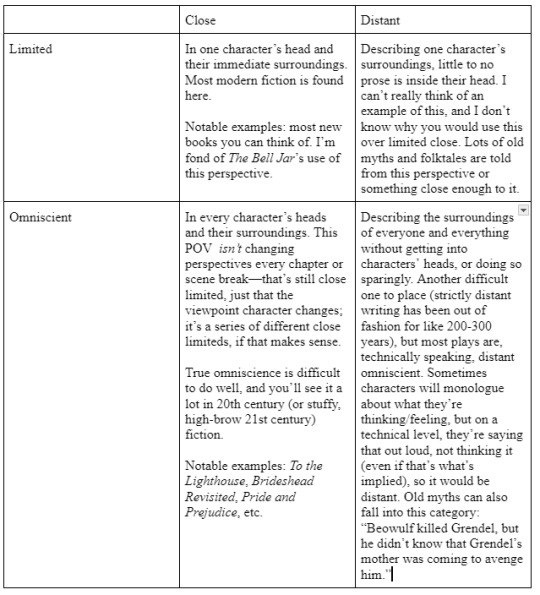
This is a confusing and complex topics, so if you have any questions, hit up my ask box, and I'll answer as best I can. The long and short of it is to understand which POV you're writing from and to ruthlessly stick to it. If you're writing in limited close, under no circumstances should you describe how a character other than your viewpoint character is feeling. Maintaining a solid POV is necessary to keeping the dream in the reader's head. Don't make them stumble by tripping up on POV!
#writeblr#writing#writing advice#fanfic#writers on tumblr#writing questions#creative writing#bookblr#writerscommunity#booklr
716 notes
·
View notes
Text
re: the Neil Gaiman shit
In light of recent revelations, it is very likely you or someone in your circle is seriously rethinking their relationship to Neil Gaiman's books.
That's perfectly natural. But if I might offer a word of advice (which of course you may do what you like with, I'm not god)?
If his books ever meant something to you growing up, and some part of you, no matter how small, refuses to let them go? That's okay. Don't devalue or burn cherished things just because the Author is a Horrible Person.
God only knows that if that were the requirement, we'd have little left to enjoy in the world.
If you feel the need to have a reckoning with your bookshelf, do not let my words stop you. Keep or discard his books at your own recognizance. Just remember that he is merely the author of these books: he is not the books themselves. If ever his books communicated something Good and True to you, do not feel pressured to throw that Good and True thing away just because the source was less good than you thought it was.
Despite his(overwhelmingly probable) guilt, Neil is ALSO one of the genuinely best writers we've had in DECADES. This will understandably complicate his legacy. As much as we like things to be simple, people are often multiple things simultaneously, and we often will dislike or even hate some of those things.
Was Neil being a hypocrite when he supported feminist and LGBTQIA+ causes while also being a huge... <gestures to all the allegations>? Very definitely. But I don't want to see the genuine strides his support helped make possible fall away just because his hypocrisy was revealed. I don't want to see people ignore or undermine the frankly EXCELLENT MESSAGES in a lot of his books just because the author didn't live up to the standards he wrote about.
This isn't about absolving Neil in the slightest. I hope he gets whatever justice he's due. But don't punish yourself arbitrarily for it. If you have decided that now is the time to move on from his books forever, I don't blame you. If you decide to keep reading his books and they inspire you to be a better person than him, that's just as awesome. Spite that sunnuvabitch with his own works.
It is my hope that people can and will continue to enjoy his stories, and take home from them some excellent messages, long after he faces justice for his actions as a person. He wouldn't be the first author whose works were forgiven long after his personal harms were done; literary history is replete with such individuals -- Lord Byron, Virginia Woolfe, Robert E. Howard, Ernest Hemingway, Ezra Pound, Vladimir Nabokov, etc. The list goes on and on for as long as one wishes to peruse it. Their problematic acts as people cannot and should not be ignored, but neither can nor should their works. Perhaps Neil Gaiman is in good company, then, as we add his name to that list. A brilliant author, with brilliant works to his name, but a far less than brilliant man.
Only you can decide how your relationship with the books you have read will work out. You alone have the power to determine what authors you read and whose works shall adorn your bookshelves.
Don't let the crowd tell you what you're allowed to read, but perhaps don't discount the crowd's opinion out of hand on this one either. They do, after all, have a point.
245 notes
·
View notes
Text
Ten must-read books for writers (or anyone, really.)
By Writerthreads on Instagram
Obviously this list is highly subjective and based on my research and personal experience. Please share your favourite books as well!!
1. To the Lighthouse by Virginia Woolf
Woolf is the queen of the stream of consciousness and a master at diving into characters' inner thoughts, conveying complex emotions, themes and perspective. Her prose is breathtaking, her character memorable.
2. Beloved by Toni Morrison
Morrison tackles difficult themes with poise like no other, diving into topics like grief, trauma, and identity. Read this book to learn how to develop multi-layered narratives whilst maintaining perfect pacing and a intricate narrative structure.
3. The Great Gatsby by F. Scott Fitzgerald
A masterpiece. Sharp social commentary, eloquent prose and vivid imagery... what more can you want from a book? Every word was chosen for a purpose, and it shows the importance of restraint in writing.
4. The Lord of the Rings by J. R. R. Tolkien
Tolkien's legendary fantasy world-building makes his series a staple in fantasy literature. The geography, cultures and histories in his works are well-crafted. Anyone trying to build a complex world can learn from from this series.
5. Mrs. Dalloway by Virginia Woolf
Our second Woolf classic in this list! Mrs. Dalloway is a masterclass of a perfect character study. Woolf weaves different viewpoints intricately, capturing the essence of human experience.
6. Pride and Prejudice by Jane Austen
Austen character development is legendary, showcasing complex, evolving characters like Elizabeth Bennet and Mr. Darcy. The novel’s witty dialogue show insight into personality and societal norms, and her narrative voice and well-structured plot keeps readers hooked to the very end.
7. Never Let Me Go by Kazoo Ishiguro
Ishiguro’s novel presents a quietly devastating exploration of memory, identity, and humanity through a dystopian lens. The subtle, restrained prose and profound emotional impact illustrate how to weave complex themes into a seemingly simple narrative.
8. The Seven Husbands of Evelyn Hugo by Taylor Jenkins Reid
This book made me cry so very hard. The author explored themes like identity and fame, while creating an engaging and multi-layered plot that had me hooked. Reid’s vivid prose showcases techniques for creating emotionally resonant and storytelling that allows readers to feel for the characters.
9. One Hundred Years of Solitude by Gabriel Garcia Marquez
Márquez’s masterpiece provides a gorgeous, profound exploration of magical realism. Its intricate narrative and richly imagined world blends fantastical elements with real-world themes into something unique and breathtaking.
10. Wuthering Heights by Emily Bronte
Brontes exploration of dark themes, framed within a dark and brooding narrative, makes it the quintessential gothic read. It's emotionally intense, complex in structure, and definitely memorable, perfect for any budding writer dabbling in dark academia, modern gothic literature, horror, etc.
And here's my rather shoddy list from a non-English major who reads too much! And Sorry for the lack of accents on the required letters, I haven't figured out how to add them on my laptop. Please give me a general opinion on my book recs and whether they're good, or if you have more suggestions! Lots of love.
#books#book recs#booklr#writing#writers on tumblr#writing tips#writing advice#teen writer#writeblr#writers#writing inspiration#creative writing#virginia Woolf is a god#mr darcy is the best love interest in romance history#books and libraries#reading#book reviews
172 notes
·
View notes
Note
what are your suggestions for starter poetry for people who dont have strong reading/analysis backgrounds
I've answered this a few times so I'm going to compile and expand them all into one post here.
I think if you haven't read much poetry before or aren't sure of your own tastes yet, then poetry anthologies are a great place to start: many of them will have a unifying theme so you can hone in based on a subject that interests you, or pick your way through something more general. I haven't read all of the ones below, but I have read most of them; the rest I came across in my own readings and added to my list either because I like the concept or am familiar with the editor(s) / their work:
Staying Alive: Real Poems for Unreal Times (ed. Nick Astley) & Being Alive: The Sequel to Staying Alive (there's two more books in this series, but I'm recommending these two just because it's where I started)
The Rattlebag (ed. Seamus Heaney and Ted Hughes)
The Ecco Anthology of International Poetry (ed. Ilya Kaminsky & Susan Harris)
The Essential Haiku, Versions of Basho, Buson and Issa (ed. Robert Hass)
A Book of Luminous Things (ed. Czesław Miłosz )
Now and Then: The Poet's Choice Columns by Robert Hass (this may be a good place to start if you're also looking for commentary on the poems themselves)
Poetry Unbound: 50 Poems to Open Your World(ed. Pádraig Ó'Tuama)
African American Poetry: 250 Years of Struggle and Song (ed. Kevin Young)
The Art of Losing: Poems of Grief and Healing (ed. Kevin Young)
Lifelines: Letters from Famous People about their Favourite Poems
The following lists are authors I love in one regard or another and is a small mix of different styles / time periods which I think are still fairly accessible regardless of what your reading background is! It's be no means exhaustice but hopefully it gives you even just a small glimpse of the range that's available so you can branch off and explore for yourself if any particular work speaks to you.
But in any case, for individual collections, I would try:
anything by Sara Teasdale
Devotions / Wild Geese / Felicity by Mary Oliver
Selected Poems and Prose by Christina Rossetti
Collected Poems by Langston Hughes
Where the Sidewalk Endsby Shel Silverstein
Morning Haiku by Sonia Sanchez
Revolutionary Letters, Diane di Prima
Concerning the Book That Is the Body of the Beloved by Gregory Orr
Rose: Poems by Li-Young Lee
A Red Cherry on a White-Tiled Floor / Barefoot Souls by Maram al-Masri
Deaf Republic by Ilya Kaminsky
Tell Me: Poems / What is This Thing Called Love? by Kim Addonizio
The Trouble with Poetry by Billy Collins (Billy Collins is THE go-to for accessible / beginner poetry in my view so I think any of his collections would probably do)
Crush by Richard Siken
Rapture / The World's Wife by Carol Ann Duffy
The War Works Hard by Dunya Mikhail
Selected Poems by Walt Whitman
View with a Grain of Sand by Wislawa Szymborska
Collected Poems by Vasko Popa
Under Milkwood by Dylan Thomas (this is a play, but Thomas is a poet and the language & structure is definitely poetic to me)
Bright Dead Things: Poems by Ada Limón
Teaching My Mother How to Give Birth by Warsan Shire,
Nostalgia, My Enemy: Selected Poems by Saadi Youssef
As for individual poems:
“Wild Geese” by Mary Oliver
[Dear The Vatican] erasure poem by Pádraig Ó'Tuama // "The Pedagogy of Conflict"
"Good Bones" by Maggie Smith
"The Author Writes the First Draft of His Weddings Vows (An erasure of Virginia Woolf's suicide letter to her husband, Leonard)" by Hanif Abdurraqib
"I Can Tell You a Story" by Chuck Carlise
"The Sciences Sing a Lullabye" by Albert Goldbarth
"One Last Poem for Richard" by Sandra Cisneros
"We Lived Happily During the War" by Ilya Kaminsky
“I’m Explaining a Few Things”by Pablo Neruda
"Stopping By Woods on a Snowy Evening" //"Nothing Gold Can Stay"//"Out, Out--" by Robert Frost
"Tablets: I // II // III"by Dunya Mikhail
"What Were They Like?" by Denise Levertov
"Those Winter Sundays" by Robert Hayden,
"The Patience of Ordinary Things" by Pat Schneider
“I, too” // "The Negro Speaks of Rivers” // "Harlem” // “Theme for English B” by Langston Hughes
“The Mower” // "The Trees" // "High Windows" by Philip Larkin
“The Leash” // “Love Poem with Apologies for My Appearance” // "Downhearted" by Ada Limón
“The Flea” by John Donne
"The Last Rose of Summer" by Thomas Moore
"Beauty" // "Please don't" // "How it Adds Up" by Tony Hoagland
“My Friend Yeshi” by Alice Walker
"De Humanis Corporis Fabrica"byJohn Burnside
“What Do Women Want?” // “For Desire” // "Stolen Moments" // "The Numbers" by Kim Addonizio
“Hummingbird” // "For Tess" by Raymond Carver
"The Two-Headed Calf" by Laura Gilpin
“Bleecker Street, Summer” by Derek Walcott
“Dirge Without Music” // "What Lips My Lips Have Kissed" by Edna St. Vincent Millay
“Digging” // “Mid-Term Break” // “The Rain Stick” // "Blackberry Picking" // "Twice Shy" by Seamus Heaney
“Dulce Et Decorum Est”by Wilfred Owen
“Notes from a Nonexistent Himalayan Expedition”by Wislawa Szymborska
"Hour" //"Medusa" byCarol Ann Duffy
“The More Loving One” // “Musée des Beaux Arts” by W.H. Auden
“Small Kindnesses” // "Feeding the Worms" by Danusha Laméris
"Down by the Salley Gardens” // “The Stolen Child” by W.B. Yeats
"The Thing Is" by Ellen Bass
"The Last Love Letter from an Entymologist" by Jared Singer
"[i like my body when it is with your]" by e.e. cummings
"Try to Praise the Mutilated World" by Adam Zagajewski
"The Cinnamon Peeler" by Michael Ondaatje
"Last Night I Dreamed I Made Myself" by Paige Lewis
"A Dream Within a Dream" // "The Raven" by Edgar Allan Poe (highly recommend reading the last one out loud or listening to it recited)
"Ars Poetica?" // "Encounter" // "A Song on the End of the World"by Czeslaw Milosz
"Wandering Around an Albequerque Airport Terminal” // "Two Countries” // "Kindness” by Naoimi Shihab Nye
"Slow Dance” by Matthew Dickman
"The Archipelago of Kisses" // "The Quiet World" by Jeffrey McDaniel
"Mimesis" by Fady Joudah
"The Great Fires" // "The Forgotten Dialect of the Heart" // "Failing and Flying" by Jack Gilbert
"The Mermaid" // "Virtuosi" by Lisel Mueller
"Macrophobia (Fear of Waiting)" by Jamaal May
"Someday I'll Love Ocean Vuong" by Ocean Vuong
"Still I Rise" by Maya Angelou
I would also recommend spending some times with essays, interviews, or other non-fiction, creative or otherwise (especially by other poets) if you want to broaden and improve how you read poetry; they can help give you a wider idea of the landscape behind and beyond the actual poems themselves, or even just let you acquaint yourself with how particular writers see and describe things in the world around them. The following are some of my favourites:
Upstream: Essays by Mary Oliver
"Theory and Play of the Duende" by Federico García Lorca
"The White Bird" and "Some Notes on Song" by John Berger
In That Great River: A Notebook by Anna Kamienska
A Little Devil in America: Notes in Praise of Black Performance by Hanif Abdurraqib
The Book of Delights by Ross Gay
"Of Strangeness That Wakes Us" and "Still Dancing: An Interview with Ilya Kaminsky" by Ilya Kaminsky
"The Sentence is a Lonely Place" by Garielle Lutz
Still Life with Oysters and Lemon by Mark Doty
Paris, When It's Naked by Etel Adnan
3K notes
·
View notes
Note
hello my friend! currently rereading dracula, as you know, and wondered if you have any recs for where to start with criticism about the novel? 🖤
This question makes me so happy! <3
I am dreadfully out of date on this, but I can certainly give you places to start; these are not all necessarily recommendations for criticism I like (there's precious little of that), but more introductions to classic criticism in the field.
The classics
The Norton Critical Edition of Dracula (edited by Nina Auerbach and David J. Skal), alongside the Cambridge Companion to Dracula, are both good introductions which collect representative examples of some of the most popular scholarly strains of thought on the novel. When someone asks me to recommend an edition of Dracula to start with, I always suggest the Norton.
Leonard Wolf (who was not Virginia Woolf's husband, but who was one of Anne Rice's college professors) was one of the most important voices in the critical reevaluation of Dracula which started in the 1970's. I often disagree with him (so much so that I once wrote a fic about how much I disagree with him), but his annotated edition of Dracula was my first. His important works are A Dream of Dracula and Dracula: A Connoisseur's Guide. He (along with Radu Florescu and Raymond McNally) was an important early proponent of the "Dracula is Vlad Tepes" theory, which was hotly opposed by...
Elizabeth Miller, ornery grand dame of Dracula criticism. She is extremely invested in being the most reasonable and the least prone to flights of fancy of all the critics, which means she does often say useful things, but she's also a little boring. She's best known for Dracula: Sense and Nonsense, but it's more a litany of complaints than actually analysis. Her books in general have useful primary source stuff.
Once you get into analysis of Dracula reception and adaptions, then I can with a full heart recommend David J. Skal's Hollywood Gothic, full of delightful trivia, which was truly Skal's strength.
Recommendations I more stand by:
Donald Glover's Vampires, Mummies, and Liberals: Bram Stoker and the Politics of Popular Fiction is one of the very few works of Dracula criticism that I thought actually dealt in any kind of thoughtful way with the racial politics of the book.
Christy Desmet's essay on Ophelia, Ellen Terry, and Dracula, collected in Shakespearean Gothic, was excellent and I still think about it; the whole collection is very much worth reading.
Loved Ann-Louise Kibbie's Transfusion: Blood and Sympathy in the Nineteenth Century Literary Imagination, which isn't all about Dracula but obviously deals substantially with it.
As a teenager I had a lot of fun reading the uploaded issues of The Journal of Dracula Studies and sometimes fantasized about submitting something to them while concealing my age/lack of higher education to see what happened (I never did). I remember feeling very vindicated by Katharina Mewald's "The Emancipation of Mina?" but don't know how it would hold up now. I haven't kept up with the most recent issues (perhaps I will start!) but at a glance there seem to be some interesting things.
ETA forgot about Allison Case's Plotting Women: Gender and Narration in the Eighteenth and Nineteenth Century Novel! Good Mina material, comparing her with Marian in Woman in White.
#another important note about my copy of the leonard wolf annotated dracula is that's stained with my blood but that detail is going in tags#dracula#criticism#recs
103 notes
·
View notes
Text
gf!Shauna Shipman HCs

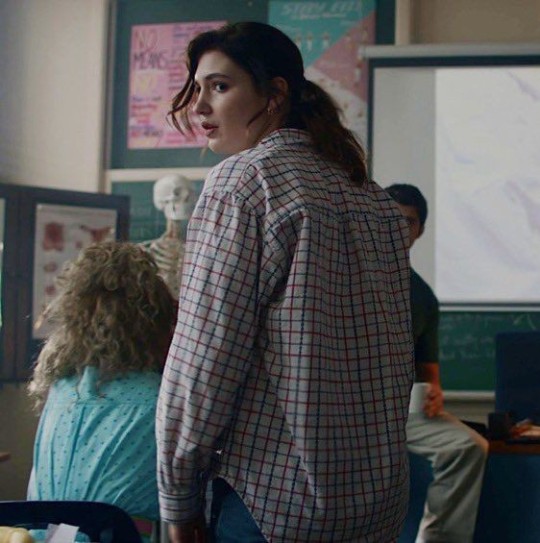

Pairing: shauna shipman x fem!reader
Summary: To be Shauna's girlfriend is… Something else, to say at least.
Word count: 1,4k.
Content: 96’ timeline, cursing, suggestive, kissing, kinda toxic shauna, jealousy, fluff, the team being done with u two.
Note: I think that’s probably a little too long for headcanons but I’m really glad someone asked for it cause I love writing for Shauna sm.
English is not my first language.
- You most likely only spoke to each other because you were paired up on some project in a class that you both hate. A classic, but also one of the few ways for Shauna to actively approach anyone she hasn't known for years or been introduced to by Jackie, the girl isn't very sociable.
- She definitely found the most random and stupid reason possible to not like you at first, just because she enjoys being a little hater.
- Like she doesn't want to meet with you to discuss the topic and just leaves you to do your part alone and you just do it because this quiet girl on the football team is pretty hot and also scares the hell out of you.
- When you guys inevitably put it all together she'd take one look at it and say it's shit and make you do it all from scratch again in like one night as if it was your fault.
- And you simply wouldn't understand why she decided to pick on you. She’d have a beef with you that only exists in her head and you’ll be like??? Wondering why the heck she keeps staring at you like a judging hare even after getting (surprisingly) an A+.
(that’s a strangely accurate description, but you think it fits her perfectly well. Eyes widen following you and nose angrily twitching when you pass by.)
- She has a crush on you. Since the beginning. But she has too many problems to actually admit that to herself.
- She would finally admit that fell for you when she sees you reading something by an author she loves. She's a cliché and a failure, no matter how much she tries to deny it. You'd be in the stands during one of the Yellowjackets' practices (by pure chance, definitely not because you want to watch her too), with a notebook open at your side and a book on your lap, working on an assignment for extra credit, Shauna would see you when she stopped to have some water and she wouldn't be able to concentrate on anything else for the rest of the day.
Especially if it was something by Virginia Woolf, Emily Dickinson or Shirley Jackson. She’d go feral. Seriously.
- Then she finally decides to act (after some suspicious looks from Jackie and screams from Taissa for disturbing everyone during the game) and it's like she was never mean to you. She’ll literally act like she's already your friend because she doesn't know how to apologize and start something properly. Will sit next you in class – and kick out whoever actually sat there – and talk to you normally, looking away and chewing on the end of her pen, speaking in a soft and innocent voice.
- You're very much confused and a little suspicious about all this, but you're not gonna complain about it with her slowly running a hand up your arm and blinking her bright deep eyes at you. Even though she still stares. A lot.
- This is how you get a girlfriend, which isn't really what you expected at all, but it's a pretty welcome change.
- gf!Shauna who only asked you out and took you for a milkshake on your first date, even though she doesn't really like sweets, when she heard Nat tell Van that she was thinking about doing that exactly same thing and finally decided to do something (they did it on purpose, just so that Shauna would stop bothering them with her constant yearning).
- gf!Shauna who accompanies you to all your classes, sometimes even being late for hers. She is so show off carrying your backpack for you and walking close enough for your shoulders to brush and rushing to Jackie's side after opening the door for you.
- gf!Shauna who keeps a hand on you all the time, on your shoulder, on your waist, on your arm, but who is too shy to hold your hand and intertwine your fingers properly. She'll become a mess if you hold her hand in the hallways or in front of the team and pretend like she doesn't like it, complaining that you're being clingy (she won't let you let go of her hand at all though).
- gf!Shauna who is jealous and possessive as fuck, no one is safe from her, not even Jackie. She will shoot daggers with her eyes and scare anyone who even breathes near you in a way that makes her feel insecure. Especially if it's someone on the team. Lottie is usually a recurring target of her reactions, making a point of keeping as much distance as possible from Shauna on the field after she sees her talking to you.
- Will totally pretend not to care and say there's nothing wrong when you ask if she's alright, while silently seething with rage and acting weird towards you, keeping everything to herself until she eventually explodes. gf!Shauna who waits until she's alone to write shit about you and the other person in her diary with a horrible, rushed handwriting.
- gf!Shauna, with whom you have to be really patient.
- gf!Shauna with whom you have study dates where she actually makes you study because she won't admit being with someone with a poor average, but who will start kissing you pretty quick until she ends up straddling you the moment she gets tired and decides you both had enough.
- gf!Shauna who absolutely loves seeing you in the stands during practice or a game. She'll show off like never before as soon as she realizes you've come, especially if you yell or cheer for her when she scores a goal. Nat, Lottie and Tai are rolling eyes hard for you two every single time.
- gf!Shauna who takes you in her car wherever you want and whenever you want, driving with one hand on the steering and an elbow resting on the window. Who looks at you with her big eyes shining like a kicked puppy if you ever say you don't need a ride.
- gf!Shauna who has the worst, most questionable taste in movies ever and who gets outraged if you mention it or try to get her to change her choice on a movie night. She's too stubborn to change her mind, so you settle for admiring her profile and leaning back against her warm body on the couch.
- gf!Shauna with whom you have almost weekly sleepovers because her parents are too oblivious to realize there’s something between you. Sleeping in her bed under the pretext that the floor is too cold and keeping the door closed so as not to bother anyone with your teenage nonsense and loud music. It's the perfect combination.
- gf!Shauna who keeps her favorite polaroids of you on your dates alongside the photos of her and Jackie on her bedroom wall.
- gf!Shauna who's always the big spoon and loves feeling your body against hers. She's practically a furnace, perfect for hiding your face on her neck or chest. The best way to fall asleep is with her arms around you and your face buried in her soft skin.
- gf!Shauna who loves to bite and leave marks for every inch of exposed skin you have. Who bites your shoulder joint and digs her nails into your back when you have her pressed against the mattress or the lockers in the changing room.
- gf!Shauna who goes crazy when she sees you in her clothes, especially her button-down shirts and flannels. Sometimes even hides your clothes just to have the excuse to give you hers, because she doesn't know how to ask you to wear them.
- gf!Shauna who writes cheesy and lame love poems for you like a victorian poet, because she doesn't know how to express herself in words without being on impulse or in a fight. You always praise her and thank her a thousand times for them, without letting her know that you don't understand most of what she writes.
- gf!Shauna who demands you tell her you love her before she does it first. She literally asks for it. And then she only says it back weeks later, rushed and nervous, at the moment you least expect it.
#yellowjackets x reader#shauna shipman x reader#shauna shipman x you#yellowjackets x you#yellowjackets show#shauna yellowjackets#shauna shipman#shauna shipman imagine#yellowjackets#denwrites
240 notes
·
View notes
Text
January in books










The God of the Woods by Liz Moore. Family drama meets procedural thriller set in 1970s and 1950s New England. Loved it, 5/5
Caligula by Albert Camus. I'm sure this would've grabbed me more if I'd watched it performed rather than just read, but it had some stunning moments anyway. 3/5
Luster by Raven Leliani. You know those litfic novels about millennial ennui in NYC? This is the book all those novels wish they could be. 4/5
The Most Secret Memory of Men by Mohamed Mbougar Sarr. A young Senegalese author on a journey to discover the story behind a lost novel. Ambitious, stunning, literally life-changing. 5 stars.
Orientalism by Edward Said. There’s no much to say except I’m standing up and clapping. What a tremendous book. 5/5
Who'd Have Thought by G Benson. Lesbian fake dating hospital romance, published in 2017 but holds up pretty well (not always a given for queer romance!) I wanted to like it more than I did, but it's just dull. 2/5
Orlando by Virginia Woolf. I was so charmed by this book and ofc the prose is stunning. 4/5
The Gentleman's Gambit by Evie Dunmore. CUTE!!! historical romance between an English suffragette and a Lebanese businessman who's appropriately dashing and also has a secret. 5/5.
Mongrels by Stephen Graham Jones. Coming of age novel about a young werewolf. Too YA for my tastes, it turns out. 3/5
A Certain Hunger by Chelsea G Summers. A novel about a female cannibal serial killer that manages to make a female cannibal serial killer boring. The prose is pretty in parts, absolutely overstuffed in others. 2/5
Le Consentement by Vanessa Springora. A memoir about the sexual relationship between a teenager and a well regarded intellectual three times her age, among the indifference and tacit tolerance of all the adults around her. A story of collective complicity in the face of abuse, 4/5
The Good Women of China: Hidden Voices by Xinran. Oral histories gathered by the author during her time hosting a radio show in the 80s and 90s, mostly set during or immediately after the Cultural Revolution. 4/5
Yesterday’s Man by Branko Marcetic. A deep dive of Joe Biden’s pre-presidential career; I enjoy the author’s essays but had issues with how this was constructed. DNF
Delusions of Gender by Cordelia Fine. This is an analysis of common neurosexist myths; it’s rigorous and witty enough to make up for how dense it is, so there’s that. 4/5
Blood Sweat Glitter by Iona Datt Sharma. ROLLER DEBRY ROMANCE NOVELLA!!! This made me so happy I have no words. 5/5
Bright Young Women by Jessica Knoll. Historical thriller. Started great ended with a whimper. 3/5
Experienced by Kate Young. The feel-good later-in-life coming-of-age lesbian romance-ish novel of my dream! I loved it. 5 stars.
Sarajevo Marlboro by Miljenko Jergović. Short story collection set and published during the Bosnian War. 4/5 with some standouts
The Girl On The Train by Paula Hawkins. I'm years late to this one but it was fun! I get it, I really do 4/5
Book of Night by Holly Black. Unforgivably dull start. DNF.
21 notes
·
View notes
Text
Pau’s Library

I’ve always liked to talk about books so I might as well keep an open logbook here. The list is a mixture of rereads, top favorites, and books read this 2025.
I won’t give a definite rating as it’s not conducive to getting anyone to read any of these. Instead I’ll be leaving a favorite quote of mine from the book, one that I wrote thoughts about in my reading journal and hope that entices you to check it out. Personal favorites will have 🌸 as its mark.
My ask box is open to any recommendations or any conversations about my list and your list too!
Yearly Re-reads
East of Eden by John Steinbeck 🌸 ↳ “It would be absurd if we did not understand both angels and devils, since we invented them.” Breast & Eggs by Mieko Kawakami 🌸 ↳ “My monolithic expectation of what a woman’s body was supposed to look like had no bearing on what actually happened to my body. The two things were wholly unrelated. I never became the woman I imagined. And what was I expecting?” Chess Story by Stefan Zweig 🌸 ↳ “People and events don't disappoint us, our models of reality do. It is my model of reality that determines my happiness or disappointments.”
2025 in books
So Late in the Day by Claire Keegan ↳ “You know what is at the heart of misogyny? When it comes down to it?’ ‘So I’m a misogynist now?’ ‘It’s simply about not giving.” Small Things Like These by Claire Keegan ↳ “What would life be like, he wondered, if they were given time to think and reflect over things.” The Hour of the Star by Clarice Lispector ↳ “She had no idea how to cope with life and she was only vaguely aware of her own inner emptiness.” The Lottery & Other Stories by Shirley Jackson ↳ “No one even noticed me, she thought with reassurance, everyone who saw me has gone by long ago.” [Pillar of Salt] Flush by Virginia Woolf 🌸 ↳ “She was too just not to realise that it was for her that he had sacrificed his courage, as it was for her that he had sacrificed the sun and the air.” The Eye by Vladimir Nabokov [tw: su*cid*] ↳ “After all, in order to live happily, a man must know now and then a few moments of blankness. Yet I was always exposed, always wide-eyed; even in sleep I did not cease to watch over myself, understanding nothing of my existence, growing crazy at the thought of of not being able to stop being aware of myself.” The Six Death of the Saint by Alix E Harrow 🌸 ↳ “But in the end, there was no saint, just a lonely girl telling secrets to herself in a dark mirror.” Journey Into The Past by Stefan Zweig 🌸 ↳ “Madness,” he exclaimed to himself, in astonishment, faltering. “Madness! What do they want? Once again, once again!” War once again, war that had so recently shattered his whole life?” Notes from Underground by Fyodor Dostoevsky ↳ “Man only likes counting his grief, he doesn’t count his happiness. But if he were to count properly, he’d see that there’s enough of both lots for him.” The Double by Fyodor Dostoevsky ↳ “Sorrow is concealed in gilded palaces, and there’s no escaping it.” Divine Rivals by Rebecca Ross ↳ “I don’t want to wake up when I’m seventy-four only to realize I haven’t lived.” The Door by Magda Szabó ↳ "When the sands run out for someone, don't stop them from going." ↳ "You can't give them anything to replace life. Do you think I didn't love Polett? That it it meant nothing to me when she'd had enough and wanted out? It's just that , as well as love, you also have to know how to kill. It won't do you any harm to remember that." Human Acts by Han Kang ↳ “Is it true that human beings are fundamentally cruel? Is the experience of cruelty the only thing we share as a species? Is the dignity that we cling to nothing but self-delusion, masking from ourselves the single truth: that each one of us is capable of being reduced to an insect, a ravening beast, a lump of meat? To be degraded, slaughtered—is this the essential of humankind, one which history has confirmed inevitable?”
2025 in essays
Verdigris: The Color of Oxidation, Statues, and Impermanence by Katy Kelleher Notes on “Taste” by Brie Wolfson Why Are We Tormented by the Future? By Joshua Rothman Writing As Transformation by Louise Gluck What Do We Do with the Art of Monstrous Men? By Claire Dederer 🌸 What’s A Fact, Anyway? By Fergus McIntosh The Disappearance of Literary Men Should Worry Everyone by David J Morris Womanhood is the Process of Understanding Your Mother by Caitlyn 🌸 In Defense of Pretension by Ayan Artan 🌸 I Want to Look Like I’ve Lived by Amelia 🌸 The End of Our Extremely Online Era by Tommy Dixon oh so you’re a thought daughter now? Should I call Joan Didion? by Sarah Cucchiara Stop trying to make Melania happen by Sarah Cucchiara Facing My Own Mediocrity by Brock Covington Women hate women who go for what they want by Ali Kriegsman I want to everything, so I do nothing by Luisa The Art of Reading like a translator by Lily Meyer

23 notes
·
View notes
Text
25 in 2025
here are 25 fiction books (plus 5 nonfiction books, because of who i am as a person!) that i want to read in 2025, color-coded!
The Fic:
Craft: Stories I Wrote For The Devil by Ananda Lima
The Dead Cat Tail Assassins by P. Djeli Clark
Lost Ark Dreaming by Suyi Davies Okungbowa
Metal from Heaven by August Clarke
Blackfish City by Sam J. Miller
Camp Zero by Michelle Min Sterling
Catchpenny by Charlie Huston
Between Earth and Sky Trilogy by Rebecca Roanhorse
The Future by Catherine LeRoux
A Grace Paley Reader: Stories, Essays, and Poetry
Look No Further by Rioghnach Robinson and Siofra Robinson
Aces Wild by Amanda DeWitt
House of Leaves by Mark Z. Danielewski
The Luminous Dead by Caitlin Starling
The Saint of Bright Doors by Vajra Chandrasekera
A Cage Went in Search of a Bird
Invisible Cities by Italo Calvino
In the Watchful City by S. Qiouyi Lu
The Archive Undying by Emma Meiko Candon
Some Desperate Glory by Emily Tesh
Bright by Duanwad Pimwana
How to Dance by Jason B. Dutton
Even Though I Knew The End by CL Polk
Whirlwind Romance by Sam Thompson
You Made a Fool of Death with Your Beauty by Akwaeke Emezi
the blue this year are Just Because books--i've gotten a zillion novellas in the last couple years that i'm super hyped to read, and i do like stacking my reading material with the season, so i'll try to do CAMP ZERO and BLACKFISH CITY while it's still wintry out there.
purple things are still driscoll-adjacent (writing project coded)--either weird or YA or sentient settings or crisis of faith or community, this year (i'm starting to Reach haha)(hopefully i'll finish these revisions this year though!!).
green starts my NaNo prep, because my aro ass is going to write some weird aro horror/romance hot mess in november, and i need Romance Novel Fodder--i've got a few other things on deck as the time approaches, but this is the start of my list for now >:D
The Nonfic, presented with neither pomp nor colorful circumstance:
Welcome to the Goddamn Ice Cube by Blair Braverman
Silent Spring by Rachel Carson
Entangled Life by Merlin Sheldrake
A Taste for Poison by Neil Bradbury
A Room of One's Own by Virginia Woolf
shout out to @e-b-reads for promising to tag me, which was apparently all the invitation i needed lmao.
tagging @asexualbookbird, @sixofravens-reads, @alloreli, @agardenandlibrary (although you may have already done this?), and anyone else who wants to play!
#text#books#25 in 2025#books of 2025#also some of the blue is adjacent to other writing projects that aren't driscoll lol#LOST ARK DREAMING is hugely an alicia interest for me#so is aces wild actually but we'll lump that with driscoll for YA#the first two nonfic are from my subscription box and i'm going to try to stay on top of those if i can!!#POISON is short story fodder#ENTANGLED is for last year's nano#anyway i'm so excited i spent all day (as of drafting this) reorganizing and rearranging books#and i have a dedicated shelf IN MY ROOM for the ones i wanna read this year!!!!!!!!#asexualbookbird#sixofravens-reads#e-b-reads#alloreli#agardenandlibrary
20 notes
·
View notes
Text
2025 TBR 📚
@haztobegood and @lululawrence tagged me to share the books I hope to read this year! 🩷 some of your picks have definitely made it to my list but i am limiting this to books I already own or have ordered
The last couple years I've really been slacking on my reading so I'm once again fighting to get to my goal of 12 books for the year. (I was two short in 2024 and I don't even want to talk about 2023...)
BOOKS THAT ARE CURRENTLY ON MY NIGHTSTAND
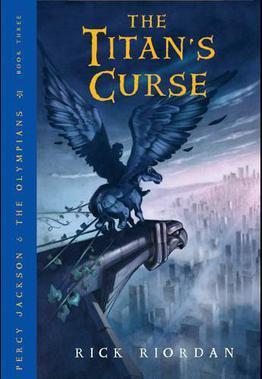
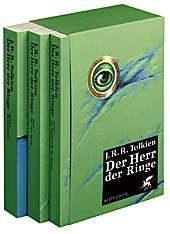
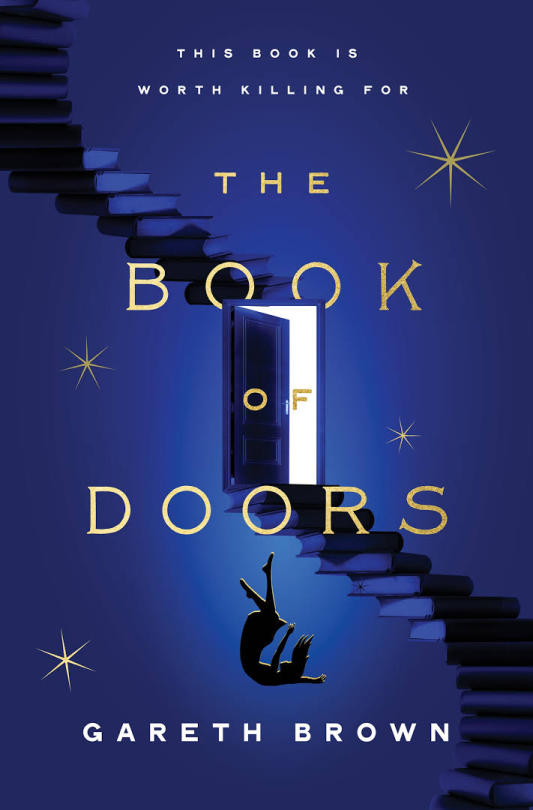
I'm technically listening to the audio book of Percy Jackson, but I will still count it on my night stand 😅 I Iike listening to Percy Jackson while walking. I found this amazing girl who read all of them on youtube and she's been walking with me for a couple years. I started reading LOTR in German in autmn and I do like it, but it feels like something I need a bit more brain power for than other things maybe. And I recently started reading The Book of Doors and I find it very intruiging so far, though I think you can tell it's the author's first publication at some points.
BOOKS THAT I WANT TO READ AGAIN
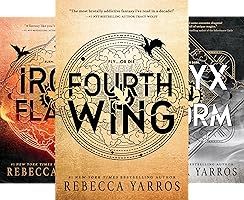
I want to read Fourth Wing and Iron Flame again before I get into the new Onyx Storm! I had to message a bookshop that specialises in English language books to try and get a full set of them that match at least in size LOL (the copies I read first stayed with my ex)
BOOKS THAT I HAVE HAD FOR AN EMBARRASSING AMOUNT OF TIME WITHOUT FINISHING/READING THEM

You can see the book marks in Mythos and Stone Blind and I actually cannot tell you why I haven’t finished either of them. Stephen Fry maybe takes more attention than I can dedicate at the end of a long day but I’ve been reading that book for almost 3 years and I adore it. Pageboy I got for my birthday a couple years ago and it has been staring at me ever since. Same with the bottom one. I wanted it so bad because it’s a collection of fairytales retold in a more inclusive/feminist way and it’s by Hungarian authors which hits so many different spots for me. But I have been so bad about reading in Hungarian it’s actually embarrassing.
BOOKS THAT I ALREADY OWN THAT I AM EXCITED TO READ

From the top down, I listened to A Room Of One’s Own by Virginia Woolf a while ago and I liked her writing so I thought I should maybe give another one a go. The Color Purple seems like a book I would enjoy and that smart people have read so I picked it up. 😅 @fadeintolight recommended I Who Have Never Known Men (I think??? Pls tell me I’m remembering this correctly lol) so that one also ended up in my basket during some bookshop escapade. And the last two I also got for my birthday this year and my friends said they’re really good so I will sink my teeth into another series this year probably.
The attentive reader may have noticed that this is way more than 12 books but alas I have always been ambitious (some might even say ambitchous).
Tagging @so-why-let-your-voice-be-tamed because you’ve been plowing through books like nobody’s business. @fadeintolight because I wanna know how that book club is going! @chaotic-bells because you’ve read over a million words of fic already so I’m sure you have some books you wanna dive into as well! @fallinglikethis because you’re always reading.
Also @whatagreatproblemtohave @asmicarus @ddeerr @ialwaysknewyouwerepunk @reminiscingintherain and @hazzabeeforlou because I wanna know what you’re all up to 🩷
19 notes
·
View notes
Text
i wanna get into more classics so
no other option bc i have a whole list like this is maybe half of the books on that list and i may make another poll at some point lol
info about my reading tastes if you want that: i mostly stay in the lane of YA fantasy or contemporary, but books a little closer to this genre that i have loved are anxious people, little women, a midsummer nights dream, this is how you lose the time war, babel, and seven husbands of evelyn hugo. yes these aren't really close to the books on this list but maybe this will help if you've read one of these and think i might love something in the poll
15 notes
·
View notes
Text
A Room of One's Own
"A Room of One's Own" by Virginia Woolf explores the world of female novelists, emphasizing the importance of financial independence and personal space for women to freely express their ideas.
I personally enjoyed a lot her reflexions about both sexes, and how she talks diferently about men and women, and their diferent grade of dificulties in order to make themselves a name in the novelism world.
I also liked a lot her references to some of the most famous and important female autors, with whom without their work and constant dedication, we, women, woudn't be where we are now in the literary world.
I give it 4 stars, because there were moments of confusion and deviation from the main topic, making it challenging to follow at times, although I think we can blame It on the writing style from back then.
Nevertheless, it's a book with valuable reflections that every women should read at least once in their life.
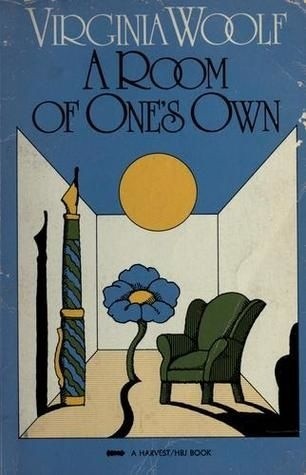
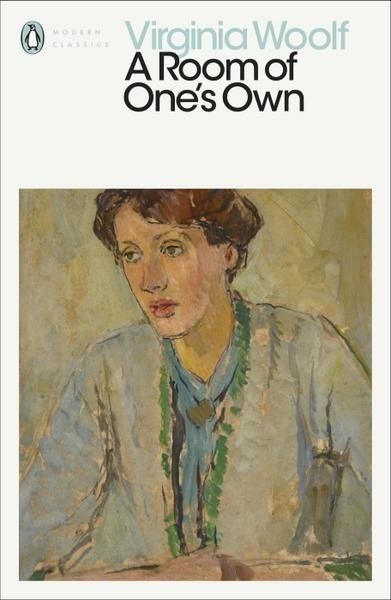
#a room of one's own#virginia woolf#classics#classic books#classic#must read#readers on tumblr#virginia#book review#book recommendations#aesthetic#books recommendations#poetic#art#spilled ink#spilled words#writers and poets#poetry#dark academia#quotes#books#words#dark acadamia quotes#light academia#chaotic academia
69 notes
·
View notes
Text
Lily and Regulus headcannons
- It all began when Regulus skipped a year in potions and was partnered with Lily.
- They didn’t talk much at first. Lily, for one, was afraid of Regulus sharing the same views on blood status as his family whilst Regulus feared Lily would see him as nothing more than his last name.
- Within a month, however, Lily started smuggling muggle books for Regulus to read (he loved all of them.)
- From then forth they were like a house on fire.
- Lily told Regulus about her family and her relationship with her sister. In return, Regulus confessed how much he missed Sirius and longed to join him.
- It wasn’t until Lily saw the scars on Regulus’ body and how sudden sound gave him a violent shiver that she realised he had it just as bad as Sirius did.
- Remus soon started joining them in their “secret library” meetings, where they either splurged on Oscar Wilde and Virginia Woolf or gossiped their way through the day.
- Lily figured there was something between Regulus and James but couldn’t figure it out until she walked in on them making out in the Astromony Tower.
- After that she was their number one shipper and helped keep their relationship a secret (for both Regulus and James’ sake)
- Regulus would secretly hex anyone who called her (or anyone) a mudblood
- Regulus would vent and be sappy about James to lily for hours and in return Lily would tease the living shit out of James.
- Regulus made sure to introduce Lily and Pandora (although he was a little stubborn because of how protective he is of both, he loves their relationship and how much they work together)
#Lily and Reg#Regulus Black#Lily Evans Rules#Jegulus#Jegulus fluff#Marauders#Lily Evans#Pandalily#Pandora X Lily#Starchaser#Sunseeker#lgbtq#Screw canon#Platonic love#Reglily platonic
398 notes
·
View notes